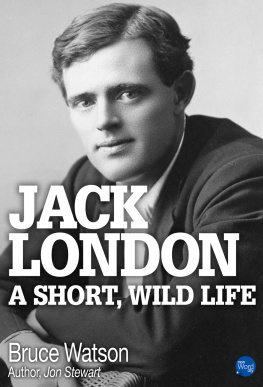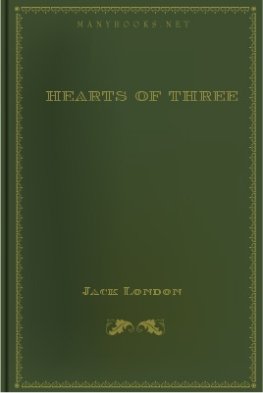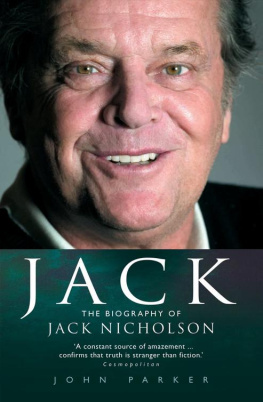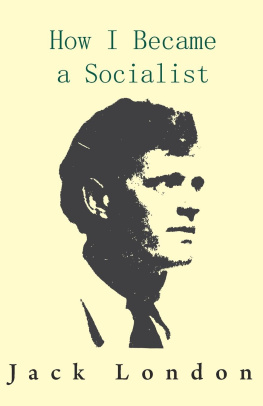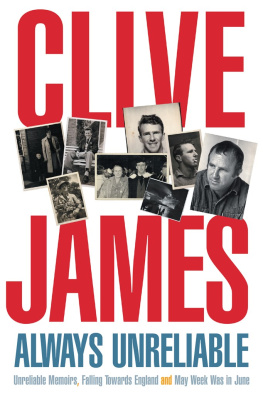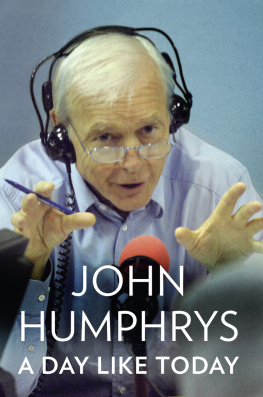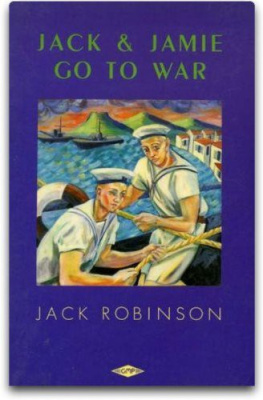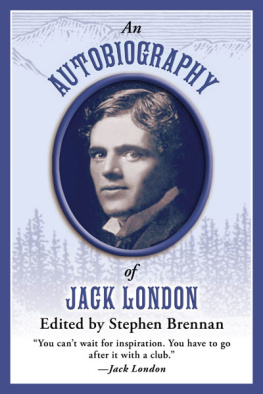London Jack - John Barleycorn: alcoholic memoirs
Here you can read online London Jack - John Barleycorn: alcoholic memoirs full text of the book (entire story) in english for free. Download pdf and epub, get meaning, cover and reviews about this ebook. City: UK;New York;Oxford;United States, year: 1998, publisher: Oxford University Press, genre: Detective and thriller. Description of the work, (preface) as well as reviews are available. Best literature library LitArk.com created for fans of good reading and offers a wide selection of genres:
Romance novel
Science fiction
Adventure
Detective
Science
History
Home and family
Prose
Art
Politics
Computer
Non-fiction
Religion
Business
Children
Humor
Choose a favorite category and find really read worthwhile books. Enjoy immersion in the world of imagination, feel the emotions of the characters or learn something new for yourself, make an fascinating discovery.

- Book:John Barleycorn: alcoholic memoirs
- Author:
- Publisher:Oxford University Press
- Genre:
- Year:1998
- City:UK;New York;Oxford;United States
- Rating:5 / 5
- Favourites:Add to favourites
- Your mark:
- 100
- 1
- 2
- 3
- 4
- 5
John Barleycorn: alcoholic memoirs: summary, description and annotation
We offer to read an annotation, description, summary or preface (depends on what the author of the book "John Barleycorn: alcoholic memoirs" wrote himself). If you haven't found the necessary information about the book — write in the comments, we will try to find it.
John Barleycorn: alcoholic memoirs — read online for free the complete book (whole text) full work
Below is the text of the book, divided by pages. System saving the place of the last page read, allows you to conveniently read the book "John Barleycorn: alcoholic memoirs" online for free, without having to search again every time where you left off. Put a bookmark, and you can go to the page where you finished reading at any time.
Font size:
Interval:
Bookmark:
OXFORD WORLDS CLASSICS
JOHN BARLEYCORN
JACK LONDON was born in San Francisco in 1876. Reared by a family without fixed occupation or residence, he lived along the Oakland waterfront described in Martin Eden (1909) and John Barleycorn (1913). As a boy he bought a sloop and set up as an oyster pirate in San Francisco bay, as later told in the Cruise of the Dazzler (1902) and Tales of the Fish Patrol (1905). After work on a sealing schooner, a tramping trip through the US and Canada, and a period of education including a semester at the University of California, he returned to the Oakland waterfront with an interest in sociology and the Socialist party. In 1897 he joined the gold rush to the Klondike, but his attempt at mining was unsuccessful, and stricken with scurvy he returned to Oakland the following year and began to write of his experiences. In 1900 his first collection of short stories, The Son of the Wolf, was issued, bringing him national fame for his portrayal of the vigorous, brutal life of the Far North. Continuing to write in this vein, he produced a prolific output of stories and novels, including The Call of the Wild (1903), The Sea-Wolf (1904), and White Fang (1906). In 1902 he went to London, where he made a study of slum conditions for his descriptive work The People of the Abyss (1903). The remainder of his short but full life was spent under the heady influence of popularity and success. He travelled as a war correspondent, made lecture tours, went on sailing voyages to the Caribbean and the South Seas, and lived on his great patriarchal estate, Beauty Ranch, in California. He died in 1916, having suffered chronic ill health for a number of years.
JOHN SUTHERLAND is Lord Northcliffe Professor of Modern English Literature at University College London. He is the author of a number of books, among them Is Heathcliff a Murderer?, Can Jane Eyre Be Happy?, Who Betrays Elizabeth Bennet?, and Henry V, War Criminal? and other Shakespeare Puzzles (with Cedric Watts). He has also edited Jack Londons The Sea-Wolf for Oxford Worlds Classics, as well as Vanity Fair and Pendennis by William Makepeace Thackeray, The Moonstone by Wilkie Collins, and The Way We Live Now and other novels by Anthony Trollope.
OXFORD WORLDS CLASSICS
For over 100 years Oxford Worlds Classics have brought readers closer to the worlds great literature. Now with over 700 titlesfrom the 4,000-year-old myths of Mesopotamia to the twentieth centurys greatest novelsthe series makes available lesser-known as well as celebrated writing.
The pocket-sized hardbacks of the early years contained introductions by Virginia Woolf, T. S. Eliot, Graham Greene, and other literary figures which enriched the experience of reading. Today the series is recognized for its fine scholarship and reliability in texts that span world literature, drama and poetry, religion, philosophy and politics. Each edition includes perceptive commentary and essential background information to meet the changing needs of readers.
Refer to the to navigate through the material in this Oxford Worlds Classics ebook. Use the asterisks (*) throughout the text to access the hyperlinked Explanatory Notes.
OXFORD WORLDS CLASSICS

JACK LONDON
Alcoholic Memoirs

Edited with an Introduction and Notes by
JOHN SUTHERLAND


Great Clarendon Street, Oxford OX2 6DP
Oxford University Press is a department of the University of Oxford.
It furthers the Universitys objective of excellence in research, scholarship,
and education by publishing worldwide in
Oxford New York
Athens Auckland Bangkok Bogot Buenos Aires Calcutta
Cape Town Chennai Dar es Salaam Delhi Florence Hong Kong Istanbul
Karachi Kuala Lumpur Madrid Melbourne Mexico City Mumbai
Nairobi Paris So Paulo Singapore Taipei Tokyo Toronto Warsaw
with associated companies in Berlin Ibadan
Oxford is a registered trade mark of Oxford University Press
in the UK and in certain other countries
Published in the United States
by Oxford University Press Inc., New York
Editorial matter John Sutherland 1989
The moral rights of the author have been asserted
Database right Oxford University Press (maker)
John Barleycorn first published 1913
First published as a Worlds Classics paperback 1989
Reissued as an Oxford Worlds Classics paperback 1998
All rights reserved. No part of this publication may be reproduced, stored in a retrieval system, or transmitted, in any form or by any means, without the prior permission in writing of Oxford University Press, or as expressly permitted by law, or under terms agreed with the appropriate reprographics rights organizations. Enquiries concerning reproduction outside the scope of the above should be sent to the Rights Department, Oxford University Press, at the address above
You must not circulate this book in any other binding or cover
and you must impose this same condition on any acquirer
British Library Cataloguing in Publication Data
Data available
Library of Congress Cataloging in Publication Data
London, Jack, 18761916.
John Barleycorn: Alcoholic memoirs/Jack London; edited with an
introduction by John Sutherland.
p. cm.(Oxford worlds classics)
First published 1913; first published as a Worlds classics
paperback 1989.
1. London, Jack, 18761916Biography. 2. Authors. American
20th centuryBiography.
3. AlcoholicsUnited StatesBiography.
I. Sutherland, John, 1938. II. Title. III. Series. 8931677
PS3523.046Z467 1989 818.5209dc20
ISBN 0192837176
3 5 7 9 10 8 6 4
Printed in Great Britain by
Cox & Wyman Ltd.
Reading, Berkshire
IN 1912 Jack London was Americas best-known under 40-year-old. Hollywood had not yet become our Hollywood, but Jack was recognizably a star and a living legend. His rugged good looks and cocked Irish chin were as well known as Theodore Roosevelts belligerent squint. (Like Roosevelt, London had a love affair with the camera. Among his literary remains at the Huntington Library are hundreds of photographs, many of himself). For his admiring contemporaries Jack London embodied the irresistible power of American youth. He was Herbert Spencers social Darwinism incarnate, an overman, a Carlylean hero, a Horatio Alger success story, a champ.
Born into an irregular marriage, the son of a vagabond astrologer and a failed boarding-house keeper in Oakland, California, Jack was a main support of his family at 10 years old, getting up at three in the morning to deliver newspapers. He left school at 14. By 15, he was the Prince of the oyster Pirates, poaching in the shallow waters off San Mateo. Before he was 18, Jack had sailed the Siberian waters as a seal hunter; he later plodded over the Klondike snows as a goldminer. In the interim he was one of the enlisted unemployed in Jacob S. Coxeys army as it marched on Washington demanding a new deal. He deserted from Coxeys ranks (inevitably, given his freebooting nature) to ride the rods, hop freight cars and generally hobo all over the northern American continent. He served time in Erie County Penitentiary (he had been to see the Niagara Falls by moonlightthe true London touch). He then returned to enroll in high school. Two years later he entered Berkeley from where, anticipating his hippy successors, he dropped out after one semester. Before he was 30, London had made a reputation as the most intrepid of international correspondents, reporting to the American people from the abyss of Londons East End slums and the Russo-Japanese War. Lesser men would have stopped in their careers at any one of these points; but for London it was ever forward on what he called the Adventure Path of life.
Next pageFont size:
Interval:
Bookmark:
Similar books «John Barleycorn: alcoholic memoirs»
Look at similar books to John Barleycorn: alcoholic memoirs. We have selected literature similar in name and meaning in the hope of providing readers with more options to find new, interesting, not yet read works.
Discussion, reviews of the book John Barleycorn: alcoholic memoirs and just readers' own opinions. Leave your comments, write what you think about the work, its meaning or the main characters. Specify what exactly you liked and what you didn't like, and why you think so.

